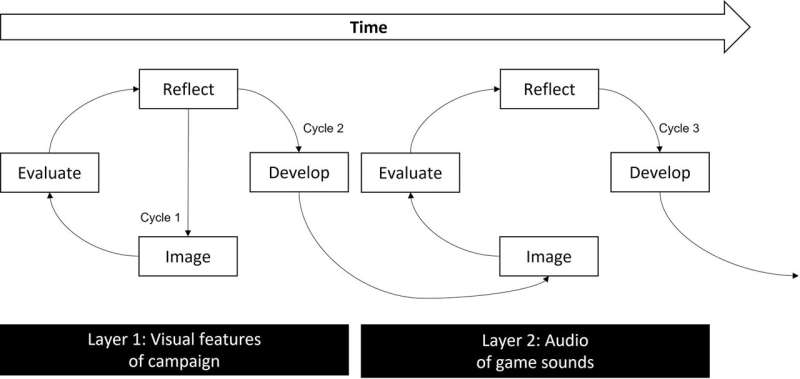This article has been reviewed according to Science X's editorial process and policies. Editors have highlighted the following attributes while ensuring the content's credibility:
fact-checked
trusted source
proofread
Imagery training could give esports athletes a competitive edge

Esport athletes can use mental imaging techniques to enhance performance and achieve optimal mental and emotional states while competing.
As participants battle to qualify for the World Esports Championships this summer, techniques that help them to imagine success could give them a competitive edge, with benefits including enhanced confidence and lower anxiety.
According to a new study at the University of Birmingham, 'imagery ability' techniques, often used by regular athletes to build rich and vivid multi-sensory images of success, could translate particularly well to the esports arena.
An example of the technique was developed at the University of Birmingham, and has been tested among elite athletes in other sporting domains. Called Layered Stimulus Response Training, the technique teaches participants to build up images in layers, creating increasingly rich and vivid images. It has previously been shown to be effective in improving participants' imagery ability levels and sporting performance.
The new study led by Professor Jennifer Cumming, published in the Journal of Imagery Research in Sport and Physical Activity, explores how the technique might be used to benefit esports athletes by teaching them to focus on the details of the image, incorporating not only visual characteristics, but also the physiological sensations and how they perceive the image (for example as helpful towards their performance or confidence).
Dr. Mary Quinton, of the University's School of Sport, Exercise and Rehabilitation Sciences, is a co-author on the paper. "To be successful in using Layered Stimulus Response Training, athletes need to learn to build up their imagery in layers. Through cycles of imaging, evaluating, and reflecting, and developing, they can gradually add more details each time to practice and refine their imagery skills."
"Esport competitors already need well-developed mental skills to be able to play at a high level. Even esport athletes who struggle to develop lifelike mental images can benefit from the flexibility of the layering technique to build vivid images, maybe within the context of performing at a tournament, for example."
A person's ability to use imagery in this way is partly determined by genetics, but also by the amount and quality of practice. With practice, these images can be generated and controlled with ease. The technique enables athletes to image, for example, a controlling pre-game nerves or winning a game, and also to eliminate or control undesired images, such as making a mistake or failing to score a goal.
The team plan to extend their research into esports by examining the effects of Layered Stimulus Response Training across a broader range of esports and among athletes of varying skill levels and imagery ability.
More information: Jennifer Cumming et al, Developing imagery ability in esport athletes using layered stimulus response training, Journal of Imagery Research in Sport and Physical Activity (2023). DOI: 10.1515/jirspa-2022-0024





















